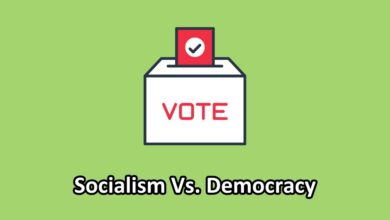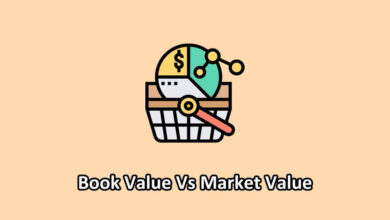Contracts are an essential part of any business, but did you know that there are two types: express contracts and implied contracts? Understanding the legal difference between these two types of agreements is crucial in protecting your rights as a business owner. In this blog post, we’ll break down the differences between express and implied contracts so that you can make informed decisions for your business.
Express contracts are agreements that are created verbally or in writing with the intention of being legally binding. Implied contracts, on the other hand, are agreements that do not involve verbal or written communication, but rather arise from the conduct of the parties involved.
Express Vs Implied Contracts (Comparison Chart)
| Express Contract | Implied Contract |
|---|---|
| An express contract is an agreement between two or more parties where the terms are explicitly stated, either in writing or verbally. | An implied contract, on the other hand, is an agreement that is not explicitly stated but is inferred from the actions, conduct, or circumstances of the parties involved. |
| It is a written agreement between two parties. | It is an unwritten agreement inferred from the actions or conduct of the parties. |
| An express contract spells out the specific terms and conditions of the agreement. | An implied contract may not contain all of the details of the agreement. |
| An express contract is typically enforceable in a court of law. | An implied contract may be more difficult to enforce. |
| It can be created through an offer and acceptance. | It may arise from a course of dealing or performance. |
| It is typically used for more complex agreements. | It is often used for simple agreements. |
| An express contract can be terminated by either party pursuant to its terms. | It may be more difficult to terminate. |
What is an Express Contract?
An express contract is a contract that is created orally or in writing, and explicitly states the terms of agreement between both parties. This type of contract is legally binding and enforceable by law. Express contracts are commonly used when one party has to agree to the specific terms of the other party, such as a lease agreement or purchase contract.
Moreover, express contracts are more straightforward than implied contracts since the terms of the agreement are clearly stated. The parties involved in the contract must be legally competent to form an enforceable contract and may need to have certain documents signed in order to validate it.
What is an Implied Contract?
An implied contract is a legally binding agreement between two parties that is not written or spoken, but rather implied by the actions or behavior of the parties involved. In order for an implied contract to be enforceable in court, there must be evidence that both parties intended to enter into an agreement and that they both fulfilled their obligations under that agreement.
Implied contracts are often used in situations where it would be impractical or impossible to have a written contract, such as in employment relationships. An employer may not have a written contract with every employee, but an employee’s continued work for the employer implies an agreement between the two parties that the employee will perform certain duties in exchange for compensation.
Examples of Express and Implied Contracts
Example of Express Contract: A contract is considered express when the terms are expressly stated. An example of an express contract is a purchase agreement between a buyer and seller that states the price, quantity, and delivery details of goods or services being purchased.
Example of Implied Contract: An implied contract is one in which the terms are not expressed verbally or in writing but are assumed to exist based on the circumstances surrounding the agreement. An example of an implied contract would be when a customer enters a store and picks up an item from the shelf. The customer’s action implies a promise to pay for the item at the checkout, even though no verbal or written agreement was made.
Key Differences Between Express and Implied Contracts
Express contracts are typically considered to be more formalized than implied contracts because they involve both parties explicitly agreeing to certain terms and conditions. Furthermore, express contracts are often easier to enforce due to their written nature and can even include clauses for punitive damages if one party fails to honor their obligation under the agreement.
In contrast, Implied contracts rely heavily on the conduct of each party during a transaction and can often be difficult to prove in court without additional evidence. As such, it is important for all parties involved
While comparing express vs implied contracts, here we have included some of the key differences between them.
- Form of Agreement: An express contract is a written agreement between two parties. On the contrary, an implied contract is an unwritten agreement that is inferred from the actions or conduct of the parties.
- Specificity of Terms: An express contract spells out the specific terms and conditions of the agreement. On the other hand, an implied contract may not contain all of the details of the agreement.
- Complexity of Agreements: Express contracts are typically used for more complex agreements, while implied contracts are often used for simple agreements.
- Termination: An express contract can be terminated by either party pursuant to its terms. On the other hand, an implied contract may be more difficult to terminate.
Conclusion
So in conclusion, we can say that express and implied contracts are both legally binding, but they differ in the way they are formed.
Express contracts require an offer to be made, accepted, and documented in writing or verbally agreed upon by both parties. Implied contracts do not need to be explicitly stated, as a court can infer that there is an agreement based on the behavior of the two involved parties.
Understanding these differences between express and implied contracts is essential for any business or individual dealing with legal matters related to contractual law.



